Splatoon isn't perfect, but it's my favorite shooter of 2015
Since Splatoon's launch in May, I've found myself conflicted. For one, I wrote the original review, giving it 3.5 stars out of five. I called it a "spectacular game of tug-of-war" that found itself mired in some bizarre design choices and a lack of on-disc content. I even revisited it a few months and several content updates later, enjoying the new maps and modes but lamenting its two-map rotation as a bottleneck holding it back from true greatness.
Now that we've reached the end of 2015 and seen everything it has to offer, I think I can come to a final conclusion: Splatoon is the best shooter of 2015.
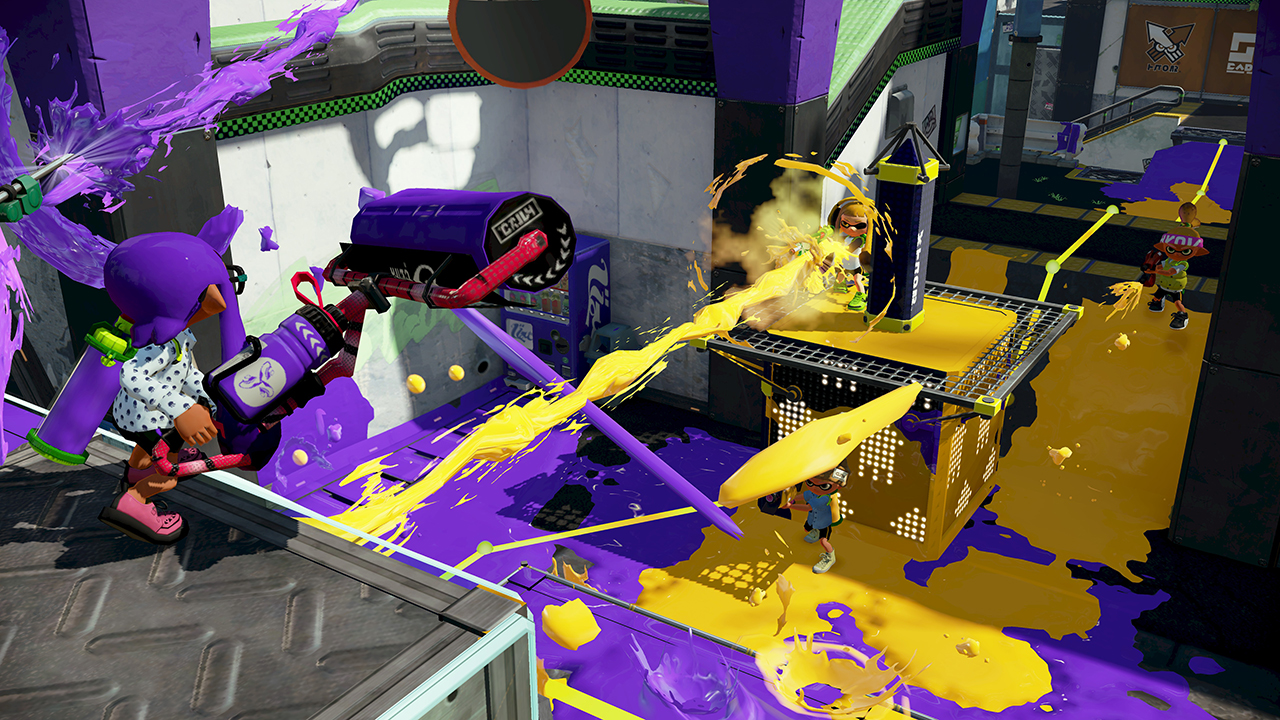
That assessment speaks both to Splatoon's overall level of polish and uniqueness, as well as the low bar set by the quality of the other shooters released this year. There's Evolve, which landed with a thud and hasn't budged an inch since. Battlefield Hardline is a case of mixed identity and incredibly poor timing. Wolfenstein: The Old Blood is fine, but was too similar to its predecessor and lacked the humanity that made The New Order such a captivating play. Destiny: The Taken King is a really well-crafted band-aid to a game with deeply rooted flaws. Call of Duty: Black Ops 3 is certainly the most Call of Duty, but it's far from the best, with a suite of jam-packed modes that seem to be simply going through the motions. And Rainbow Six: Siege is loaded with so many opportunities for micro-transactions that even Evolve is looking pretty good in comparison.
It's not that any one of these games are bad, exactly. Like Splatoon, many of these games have tons of great ideas, but none of them stand out as a clear winner, each one packing its own set of flaws and hang-ups. Evolve has a really interesting idea buried somewhere inside of it, but unlocking new classes and upgrades is a total chore, and playing as a monster - one half of the total Evolve experience - isn't nearly as fun as it should be. Star Wars Battlefront is really good at providing the feeling of enacting out battles in a galaxy far, far away, but if you take a minute to dig a little deeper, you'll find a game with very little substance. Even Halo 5, which is one of the better shooters this year, makes some serious stumbles. Its campaign meanders for too long and ends right when it starts to get really interesting, and its multiplayer, while top-notch, isn't really doing anything new outside of the admittedly fantastic Warzone mode.
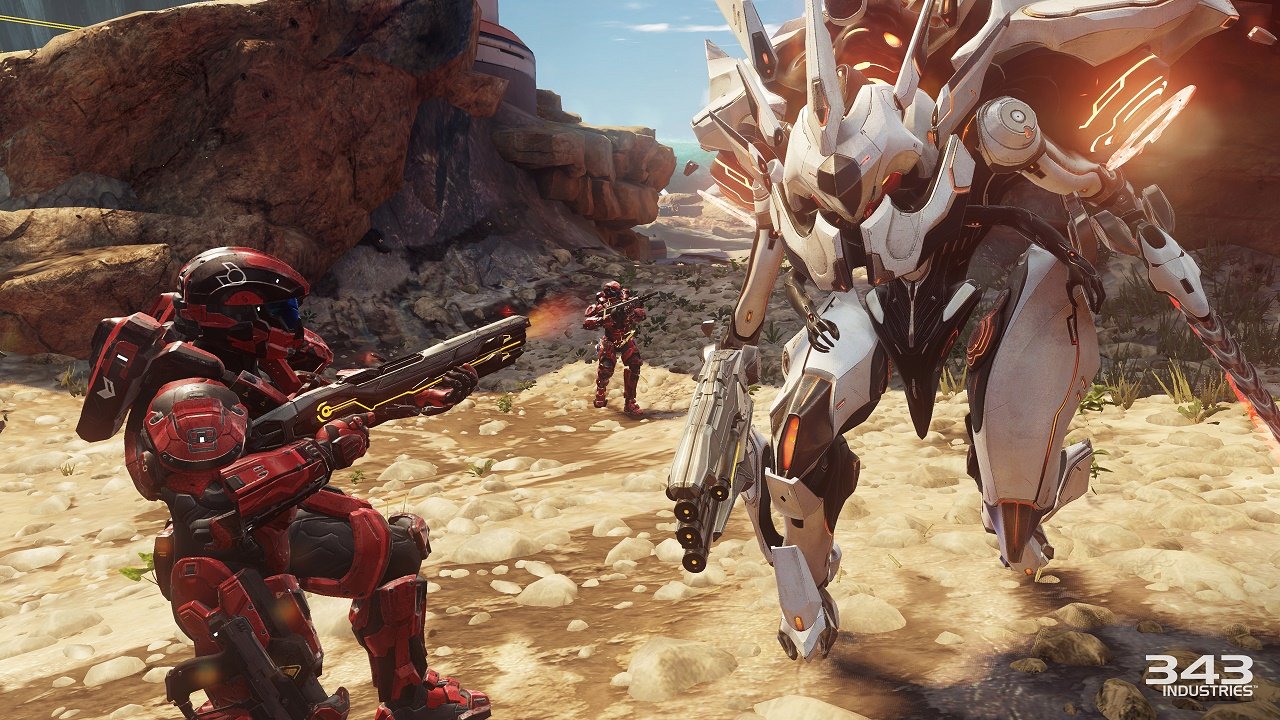
Many of the shooters this year are merely building off past experiences, whether it's a sequel or a new game that tweaks established formulas, and they feel more like half-steps forward than must-play experiences. That's not necessarily the developers' fault - Halo, Call of Duty, and even Star Wars Battlefront all have huge audiences with specific expectations. Cling too closely (as Black Ops 3 does) and you're not innovating enough. Swing too wide, and fans will decry you for abandoning the core.
Meanwhile, Splatoon doesn't have to worry about any of those expectations. It's doing something wildly different in a very exciting way, in which every moment-to-moment action feels fluid and necessary. In Splatoon, you only have a few moves available at a given time, but each one opens up a wealth of strategic opportunities. Shooting the ground with ink doesn't just give your team more points - it allows you to swim, granting faster movement speed and the ability to dodge your opponent's attacks. Swimming will even allow you to climb up and over certain obstacles if you lay down a river of ink to where you want to go. Shoot too much ink, though, and you'll run out when you need it the most, and end up on the receiving end of an ink blast from your foes. Matches are quick, maps are small, and each round is a constant give and take where every single second on the clock is vital to your success.
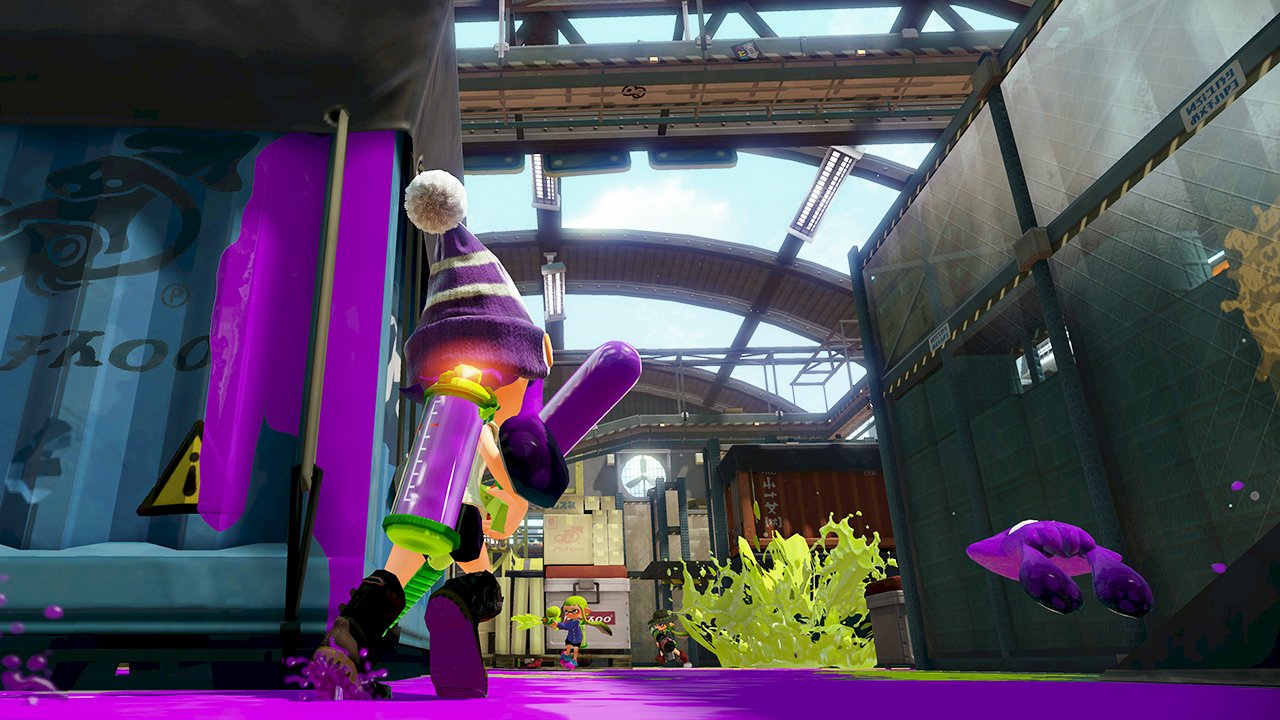
That sense of immediacy in the matches extends to its progression system, too. Where Evolve or Star Wars Battlefront require you to spend hours to unlock new weapons and characters, Splatoon keeps things simple, only gating a few bits of gear and weapons from you, which can be unlocked by playing a few, incredibly quick rounds. You're never shut out of important strategic options (unlike Star Wars Battlefront, whose grenades and jetpacks are game-changers locked behind a wall of experience points and credits), and the default weapons are just as viable as any of the ones you can buy. Even voice chat is unnecessary, as all of information you could possibly need is portrayed on the main screen or by glancing on the Gamepad's map.
Sign up to the GamesRadar+ Newsletter
Weekly digests, tales from the communities you love, and more
That feeling extends right into Splatoon's single-player experience. The campaign is incredibly short, even by shooter standards, but its four-hour runtime never wears out its welcome. You get a few dozen compact, highly imaginative levels that wring every last drop out of Splatoon's mechanics, without a moment of padding. Contrast that with Halo 5 or Black Ops 3, whose narratives are plodding, at times nonsensical, and ultimately underwhelming. The level design in Halo 5 certainly fares better than Black Ops, but it too suffers from unnecessary fluff, as you fight several, increasingly frustrating battles against a Forerunner entity known as the Warden.
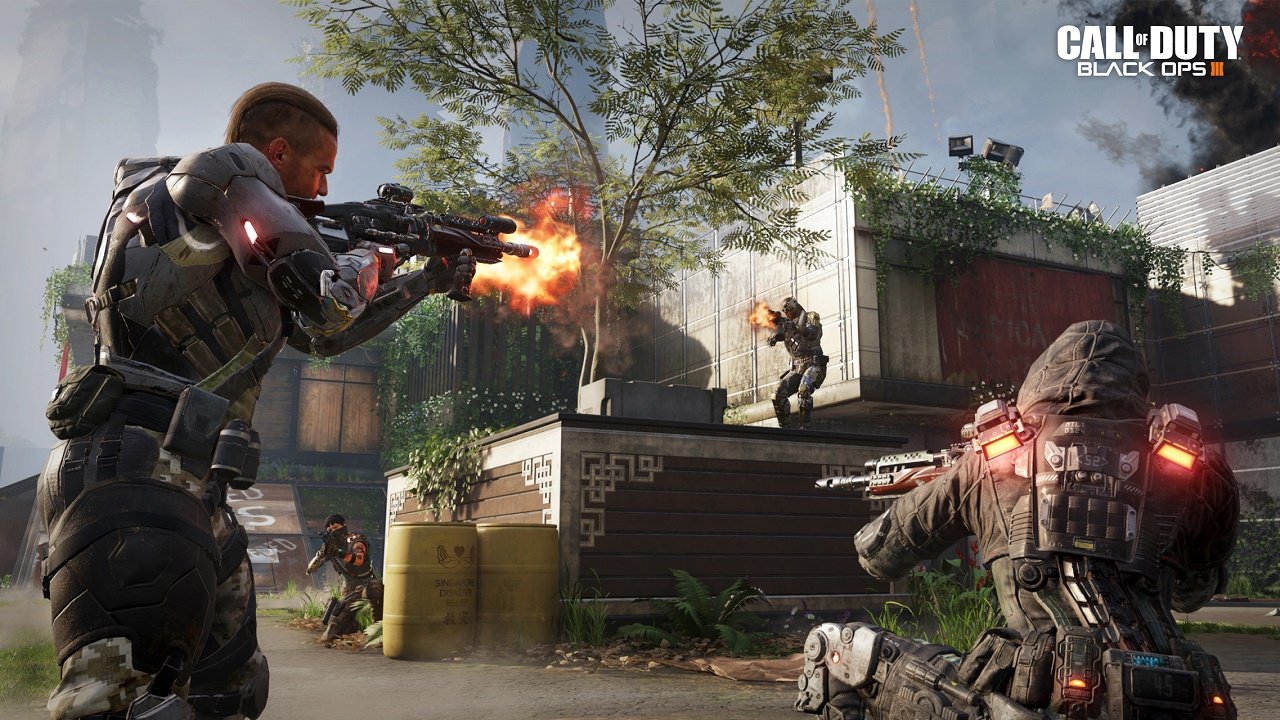
These games are loaded with player expectations - the narrative has to deliver on a certain level, the enemy design has to feel a certain way, the guns have to have a specific weight to them, the campaigns have to last a certain length. But as a new, fresh take on shooters, Splatoon can afford to trim away all of the fat and discard of the baggage that comes with more conventional FPS titles, creating a snappy, highly-focused experience that's easy to understand while still offering an unexpected layer of depth.
And while Splatoon's initial on-disc content was certainly lean at launch, Nintendo has continued to roll out a steady stream of additional maps, modes, and weapons - all for free. In an age when Season Passes for multiplayer games aren’t just expected, but practically mandatory, Nintendo is keeping Splatoon's multiplayer fresh without requiring $50 add-ons (though if you want more single-player challenges, you'll have to shell out for a few amiibo, which is disappointing).
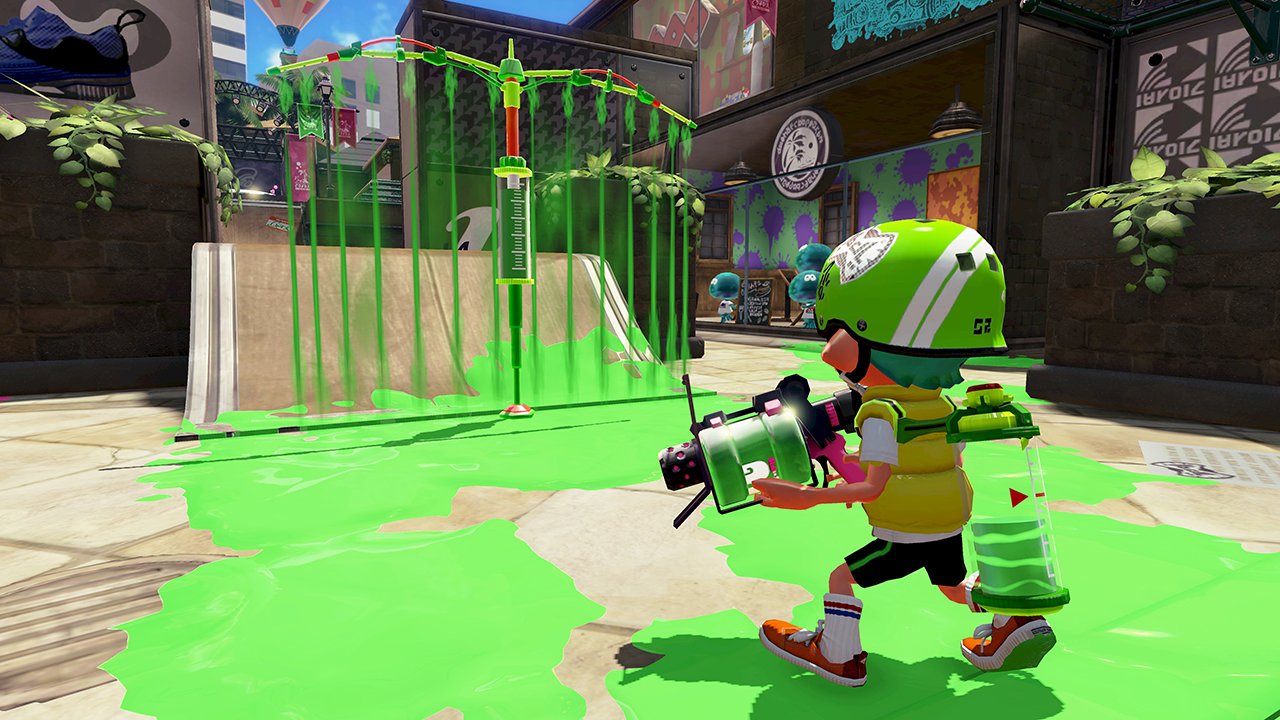
By releasing all of its multiplayer content for free, Nintendo not only ensures that people continue to come back for more, but it also keeps the player-base from fracturing - something that inevitably happens when you require fans to purchase new maps every few months. Yes, Splatoon should have had more content available at launch (and that two-map rotation is still asinine), but I admire Nintendo for putting the quality of the experience for its players first over any potential profits it might have gotten for charging for that content. In the wake of the nickel-and-diming going on in games like Evolve or Rainbow Six: Siege, it's a breath of fresh air.
Splatoon isn't perfect. Even now, many of its fundamental issues, like the aforementioned map rotation or the inability to switch loadouts between matches, haven't been fixed and likely never will be. But despite all that, I look back fondly on the time I spent with it, and realize I had more fun playing Splatoon than any other shooter that came out in 2015. It may have been a weak year for shooters, but Splatoon is a tightly-designed, highly innovative game that deserves all of the love it's getting.



